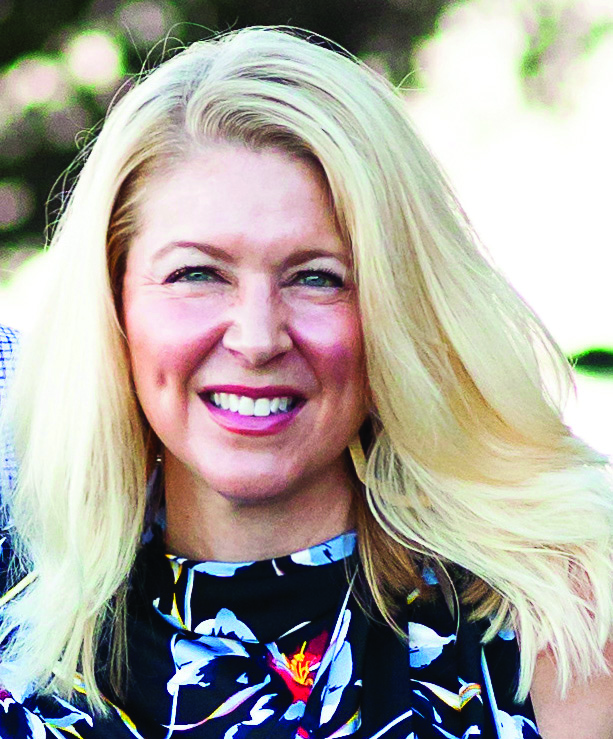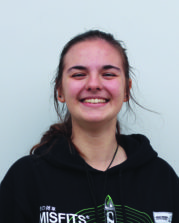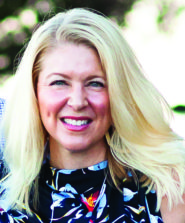
Maya Wyr, Flute/Piccolo

What is a typical rehearsal like?
We [have one] all-day rehearsal and … Rick Reynolds, the conductor, will run us through and give us a few tips. … We’re usually going pretty quick because there’s a lot of music to get through. There are some things that orchestra needs to just work on with each other, especially if we’re cutting something out and … editing parts and pieces. We need everything lined up and the nuances … really need to be ironed out before cast starts working with us or else we’ll confuse them or they’ll confuse us and it’ll make things harder.
What’s your favorite part about playing in “Young Frankenstein?”
It’s so different from everything else I do musically. I’m in a military kind of band; the school band and I play a lot of flute duets and whatnot. [In the theater], it’s a new experience and I wanted to broaden my horizons. Pit orchestra was something I always wanted to do. Now that I’m finally able to, it is really refreshing and gives me new musical experiences.
How is “Young Frankenstein” different from other productions you have worked on?
I think they’re quite similar as most of the cast is the same. “Young Frankenstein” is a bit longer. … There’s more music, there’s more lines. In “Sweeney Todd,” we had a bit of a hiccup in getting orchestra together because our band directors switched. It was … interesting getting everything together in the last few weeks. … It was quite stressful. But [the experience] taught me how to get on my feet really quick, get to these performances every day on time and to get a lot of practice done in such a short amount of time. … There’s always a bit of [anxiety]; you’re always a little nervous [because] it’s a lot of work to be put in and anything can go wrong, but the show must go on.
Do you think you want to pursue a profession in music in the future?
I’m thinking of at least minoring in music. I probably won’t become a professional musician [because of] how difficult it is to get into that industry, but I always want to keep music as a part of my life forever. There’s no way I can drop it once I get into college. I’ll always be in bands and will always be playing on my own. Hopefully, I’ll always be taking lessons just because there’s always ways to get better at your instrument.
Amy King, Drama Booster

What do you do on the production staff of “Young Frankenstein?”
I’m responsible for all the marketing and publicity for Aragon Drama. It is all the publicity so it includes all of the graphics and the collateral and all the social media.
What are you excited about for “Young Frankenstein?”
Obviously the caliber of talent of the cast is phenomenal. I am really excited to see them perform. We also really upped our game this performance. We hired a costume designer this year and a new choreographer, so we have a lot of theater professionals helping to guide and elevate the quality of our production.
You mentioned hiring. Does that mean that the budget of the production increase?
It definitely did. … We increased the budget and the reason we were able to … is we’ve increased our fundraising efforts and our ticket sales. The goal really is trying to make the revenue of the show basically be paid for by the ticket sales because we are trying to … bridge the gap between fundraising donations and corporate sponsorship. This year, the district, for the first time, is giving a grant so that we can offer quite a lot of free student tickets to the show. … That’s an exciting way to drive attendance and interest in the program.
How is “Young Frankenstein” different from other productions you have worked on?
We’ve made a concerted effort to elevate the quality of the production and so every performance of production has only gotten better. … I would say that’s the biggest difference … [is] hiring set designer or getting professional costumes. When I first joined, people were putting [their costumes] together, sewing on their own and being crafty, which is perfectly fine and we appreciate the resourcefulness, but we finally realized that [through] TheatreWorks and A.C.T. in the city, we can rent professional period appropriate costumes for less than we were spending [when] trying to create our own costumes.
Were there any challenges throughout this production or any other previous productions that you have worked on?
I would say the challenge is to elevate awareness of Aragon Drama within the district and within the community. We know we have a lot of amazing, young talent in the Bay Area and I think trying to attract students who are passionate about Theatre Arts [is challenging]. You know, that’s one of our goals. All of the insights that [Mr. Smuin] is able to offer really made a huge difference. He’s not just [putting] on a theatrical production. … He’s really trying to teach the kids the value of theatrical storytelling, which makes it more meaningful to the audience and the cast members.
Katy Alaniz Barnhill, Choreographer

Walk me through a typical rehearsal.
Most of the actors are not dancers or consider themselves dancers. I would always have [the actors] warm up and then start with basic moves to see who could pick things up because I wasn’t very familiar with who was capable of doing which moves until I set it on them. [Each rehearsal] was a different experience.
How did you choreograph the numbers in the production?
I [choreograph] based on the music, but also based on where it’s happening. I come from a background of 30 different kinds of cultural dance, so that’s how my perspective was unique to this production. In the original production of “Young Frankenstein,” they had some movements that were actually Russian dance. So I actually [included] folk dance styles from Romania and learned [some] from Transylvania for this production.
What challenges do you face in choreographing?
I’ve danced for several years and have had my own dance company for 19 years, so when I’m choreographing my own things, I don’t have a limitation of a song. It’s a lot more open in terms of expression. There are definitely some limitations in terms of storyline and understanding the blocking that the director has put on beforehand … [and] knowing where actors start and need to finish to make them deliver their next scene.
How do your other experiences differ from this production?
It has to do with the actors. Working with high school kids in general, if they’re not trained in dance previously, is a different set of movement vocabulary. For these high school actors, some of them are natural movers. A couple of them come with some background in dance and that made learning steps easier, but we wanted a cohesive production and so I choreographed to the midline. … We wanted everyone to look great and uniform together.



